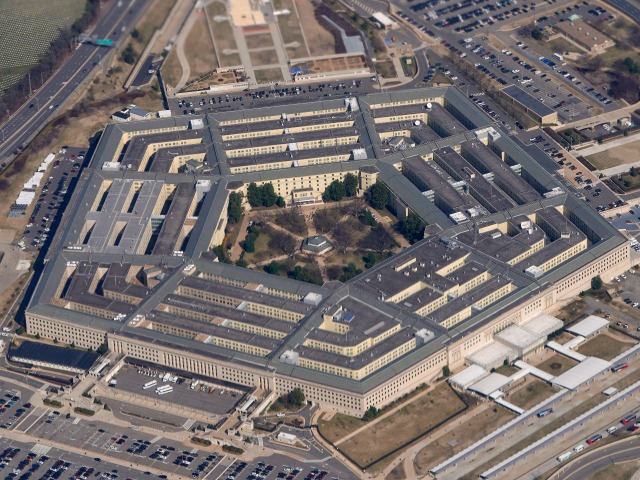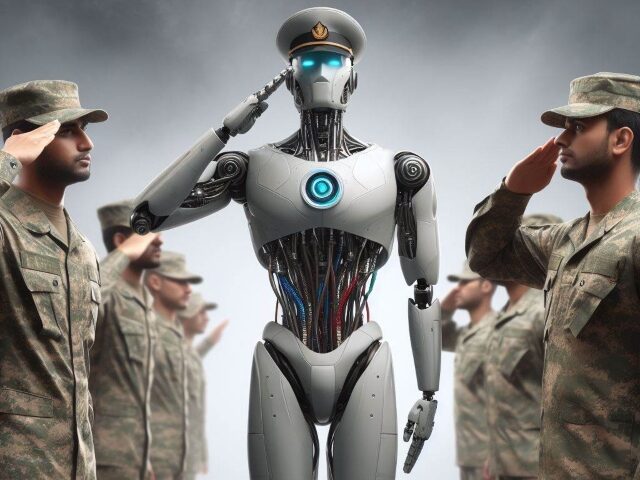The U.S. Army Research Laboratory is reportedly testing the potential of commercial AI chatbots like OpenAI’s GPT-4 to assist in military strategy and battle planning, claiming to keep AI within the confines of a simplified wargame simulation.
NewScientist reports that in a recent experiment, researchers from the U.S. Army examined how well advanced AI language models could perform as virtual advisors in a simulated battlefield scenario. The study was conducted using the popular science fiction video game StarCraft II as a controlled testing environment.

FILE – The Pentagon is seen from Air Force One as it flies over Washington, March 2, 2022. (Patrick Semansky/AP)

Sam Altman, chief executive officer of OpenAI Inc. Photographer: David Paul Morris/Bloomberg via Getty Images
The researchers provided the AI chatbots, including OpenAI’s GPT-4 Turbo and GPT-4 Vision models, with details about the simulated terrain, friendly and enemy forces, and military doctrines for offensive and defensive operations. The AI assistants were then tasked with proposing courses of action to accomplish a specific mission objective – destroying all enemy units and capturing a designated point on the map.
Within seconds, the AI chatbots responded with multiple strategic proposals. A human operator, acting as the military commander, could then query the AI for clarifications or modifications to the proposed plans before finalizing and executing the orders.
The results showed that OpenAI’s latest GPT models outperformed older AI agents in this simplified wargame context. However, they were not perfect, suffering higher casualty rates while still managing to achieve the overall mission goals.
While OpenAI has updated its policies to permit some military applications aligned with its AI ethics principles, the company still prohibits uses involving weapons development or potential harm to people and property. The Army Research Laboratory declined to comment on the specifics of the study.
Experts warn that deploying such AI chatbots for real-world operational planning would be premature and unwise given the current limitations of the technology. “This idea that you’re going to use [an AI] that’s going to say ‘here’s your really big strategic plan’, technically that is not feasible right now,” said Josh Wallin, a cybersecurity expert at the Center for a New American Security. “And it certainly is not feasible from an ethical or legal perspective.”
Concerns have been raised about automation bias, where human operators may place excessive trust in AI-generated advice even when contradictory evidence exists. “I would not recommend using any large language model or generative AI system for any high-stakes situation,” cautioned Carol Smith from the Software Engineering Institute at Carnegie Mellon University, which is sponsored by the Department of Defense.
While the U.S. military continues exploring potential applications of advanced AI, many experts argue that deploying the technology for mission-critical operations remains highly risky and potentially unethical given the current state of AI development.
Read more at NewScientist here.
Lucas Nolan is a reporter for Breitbart News covering issues of free speech and online censorship.

COMMENTS
Please let us know if you're having issues with commenting.